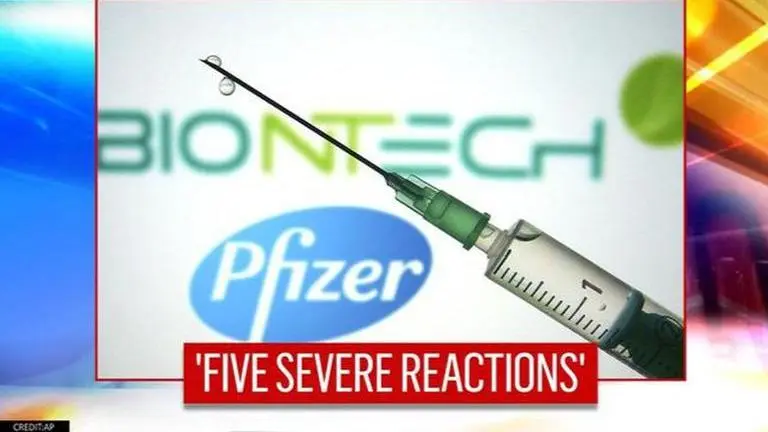Updated 20 December 2020 at 11:07 IST
COVID-19 vaccine update: CDC issues guidelines after reports surface of allergic reactions
“If you have ever had a severe allergic reaction to any ingredient in a COVID-19 vaccine, you should not get that specific vaccine,” US CDC recommended.
- World News
- 2 min read

US Centers for Disease Control and Prevention (CDC) on December 19 issued a set a guidelines for those reporting Severe Adverse Event (SAE) or severe allergic reactions from the COVID-19 vaccination.The centre stated that they learnt from ‘reports’ that some people were facing allergic reactions such as anaphylaxis and had to be treated with epinephrine or EpiPen while some also needed hospitalisation.
The Centre highlighted that people who have severe allergic reaction after the first dose must not take the second shot and those who have had severe allergic reactions to components in a COVID-19 vaccine should not get that specific vaccine.
It further recommended that people with a history of allergy from the injectable therapies must seek a healthcare consultation first.
“Your doctor will help you decide if it is safe for you to get vaccinated,” the centre asserted. However, those with allergies such as to food, pet, venom, environmental, or latex, which is unrelated to the injectable medications, can get vaccinated. Moreover, anyone who has a family member with a history of mild allergies to oral medications or severe allergic reactions to vaccines but no anaphylaxis could get themselves vaccinated.
Advertisement
Advertisement
🧪 COVID-19 Science Update:
— CDC (@CDCgov) December 17, 2020
Read the latest #COVID19 research on vaccine safety, spread of the virus on airplanes and the impact of stay-at-home orders.
👓 Read the full update: https://t.co/uQmkaIp9a6. pic.twitter.com/OXssORep0C
Should be 'monitored on-site'
Meanwhile, it was advised that those that reported severe allergic reactions to the vaccination will have to dispatch a report to the Vaccine Adverse Reporting System (VAERS). This is a national database maintained by the local US healthcare professionals and the vaccine manufacturers that will record all the allergic reactions to keep the public informed. “All people who get a COVID-19 vaccine should be monitored on-site. People with a history of severe allergic reactions should be monitored for 30 minutes after getting the vaccine. All other people should be monitored for 15 minutes after getting the vaccine,” CDC advised.
Published By : Zaini Majeed
Published On: 20 December 2020 at 11:07 IST
